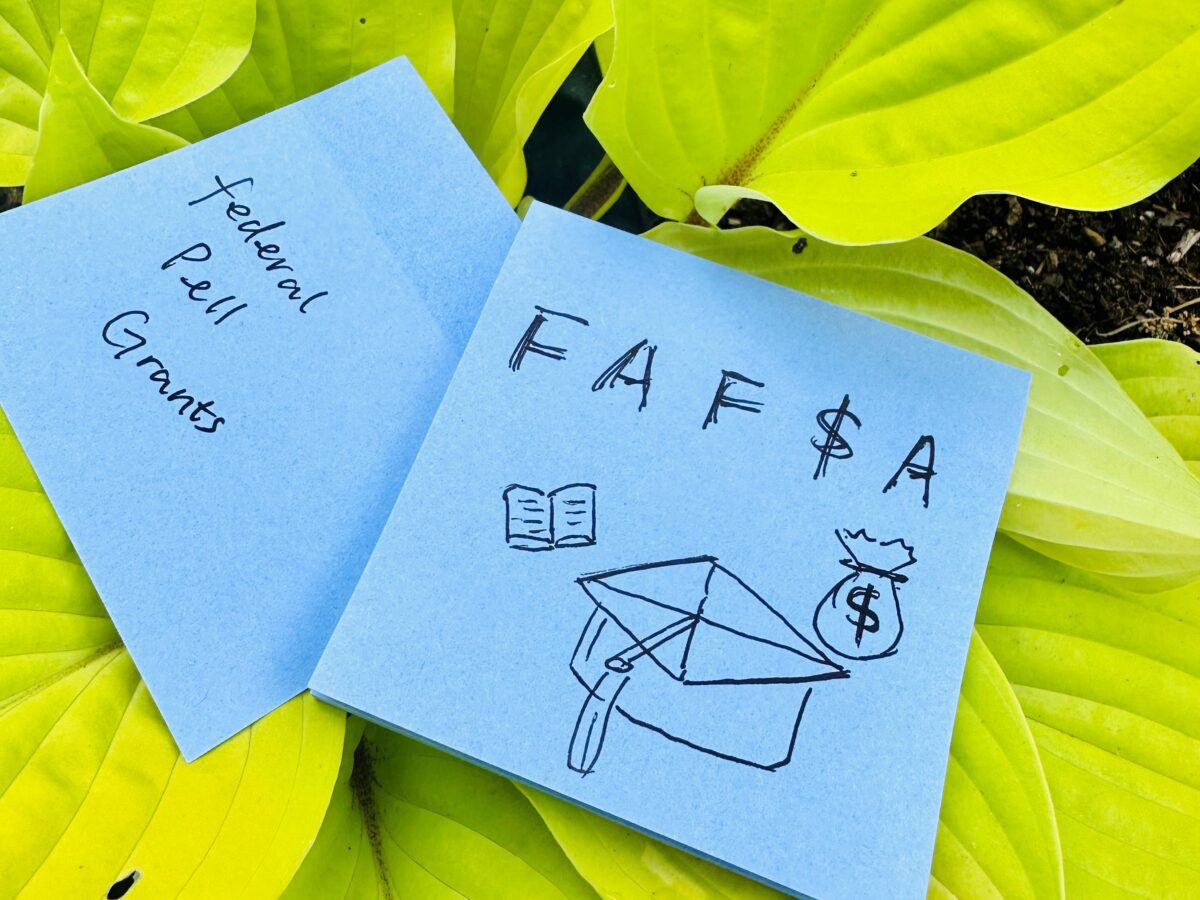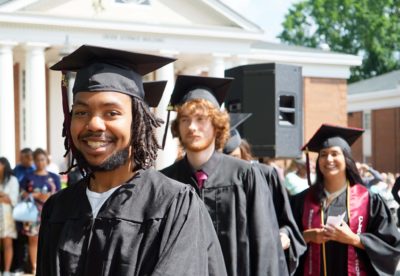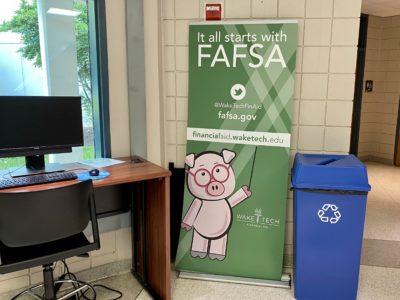

|
|
According to the National College Attainment Network (NCAN)’s report, the North Carolina high school class of 2022 left $113,094,383 in Pell Grants on the table as a result of not completing the Free Application for Federal Student Aid (FAFSA).
Without completing the FAFSA, students have no opportunity to receive a Pell Grant or other federal financial aid. The analysis from the prior year revealed that $126,259,224 in Pell Grants went unclaimed for the North Carolina high school class of 2021. Between just two graduating classes (2021 and 2022), $239 million in Pell Grants were left on the table.
Last year, 60% of the high school class of 2022 in North Carolina completed a FAFSA by September 30, 2022. There were 63,989 applications completed. How is the current high school class of 2023 doing?
Positive progress thus far
2023-2024 FAFSA opened on October 1, 2022. Six months have passed, and 48,100 FAFSA applications are completed by North Carolina students (completion data through March 24, 2023). This is approximately 43% of the North Carolina high school class of 2023.
Compared to last year this time, we are seeing an increase of 2,689 completions (a 5.9% growth). Despite the promising year-over-year progress, North Carolina is below where it was at this time of the year before the pandemic. During the 2019-2020 FAFSA cycle, North Carolina had 52,240 completions at the end of March.
Currently, North Carolina is below the national completion rate of 45% and ranks 26 out of the 50 states and the District of Columbia. The good news is that North Carolina seniors always catch up in the back half. Last year, North Carolina ranked 25th nationally on April 1st and made it to the 15th on September 30th. However, students are encouraged to complete the FAFSA as soon as possible because North Carolina colleges and universities award aid on a first-come, first-served basis. To optimize financial aid eligibility, it is the best practice to submit any required information early.
(North Carolina FAFSA completion rates and national rankings are from NCAN FAFSA tracker.)
A signal for postsecondary attainment
Many studies illustrate the positive relationship between completing FAFSA and postsecondary attainment. One study found 90% of FAFSA completers attend college directly after high school, compared to just 55% of students don’t complete the FAFSA. FAFSA completers are also more likely to persist and obtain a degree.
According to a report, for every $1,000 in aid a student receives, persistence increases by one to five percentage points; and for every $1,000 increase in Pell Grants, lower-income students’ chances of earning a bachelor’s degree within six years increase by 3%. According to NCAN, the average Pell Grant award for the North Carolina class of 2022 last year was $4,651.
In North Carolina, FAFSA filing is not mandatory, so submitting the federal aid form is a relatively strong indicator of whether a high school senior intends to go to college. In the last decade, fewer and fewer North Carolina high school graduates show intentions to enroll in postsecondary education.
The postsecondary intention rate dropped 11 percentage points from 86% in 2011 to 75% in 2021. While many factors affect students’ attitudes toward postsecondary education, the college price tag is often cited as a primary obstacle for students, and financial barriers are a top concern for parents as well. Completing the FAFSA can allow students to realize college is affordable and help some students who might not have thought about going to college before seeing it as a feasible option.
North Carolina colleges and universities enrollments are still below the pre-pandemic level. Hopefully, the increased FAFSA fillings represent an early positive sign for college enrollment.
A team effort to increase FAFSA completion
North Carolina seniors are supported by their communities to complete the FAFSA. For example, Randolph Community College hosted two Spring FAFSA nights last month and the University of North Carolina at Pembroke hosted four “FAFSA on the Wheels” events across Robeson County to make resources accessible to students in the community.
State agencies, nonprofits, and philanthropies are also lending support and expertise. College Foundation of North Carolina offers step-by-step guides and extensive resources for students and families. myFutureNC is leading a Spring 2023 FAFSA Pilot with 23% of school districts and their community and regional support partners to share resources, analyze data, and identify strategies. John M. Belk Endowment is a critical partner for myFutureNC’s First in FAFSA and FAFSA Pilot initiatives, and it is committed to transforming postsecondary educational opportunities.
While high school counselors are trying their best to offer help with FAFSA, North Carolina’s student-to-counselor ratio of 321:1 makes one-on-one support difficult. As complex as the FAFSA can feel, hands-on assistance is critical. College Advising Corps is filling in the gaps and helping with FAFSA applications. GEAR UP North Carolina also provides support as students navigate the process. Appalachian State’s GEAR UP helped one rural district boosted its FAFSA completion rate to one of the highest in the state.
Now, only two months away from summer, we hope students complete their FAFSA before end-of-year tests and graduation consume the schedule. Increasing North Carolina’s FAFSA completion rate is a team effort, and leaders across the state are willing to help. Please leverage all the resources mentioned above and reach out to myFutureNC’s Regional Impact Managers if you need additional support.
Having 65% of seniors complete the FAFSA this year is an attainable goal for the state of North Carolina.





